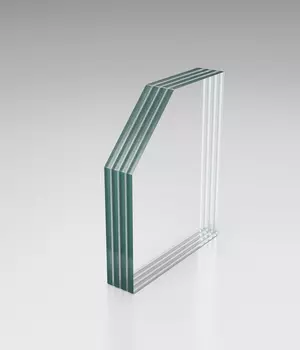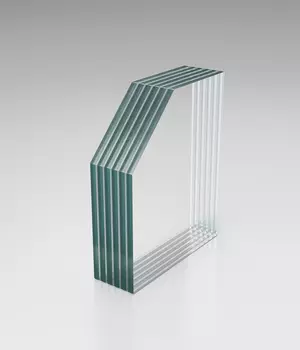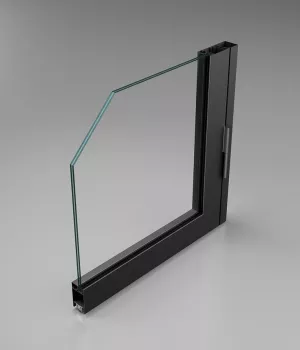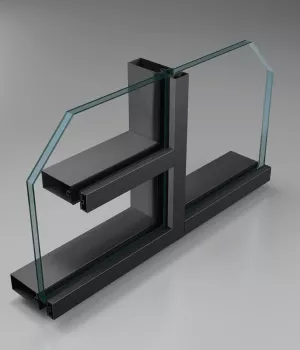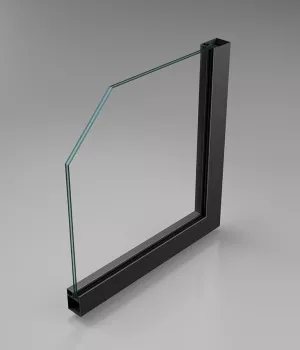How to Enhance Industrial Safety with Certified Glass Solutions
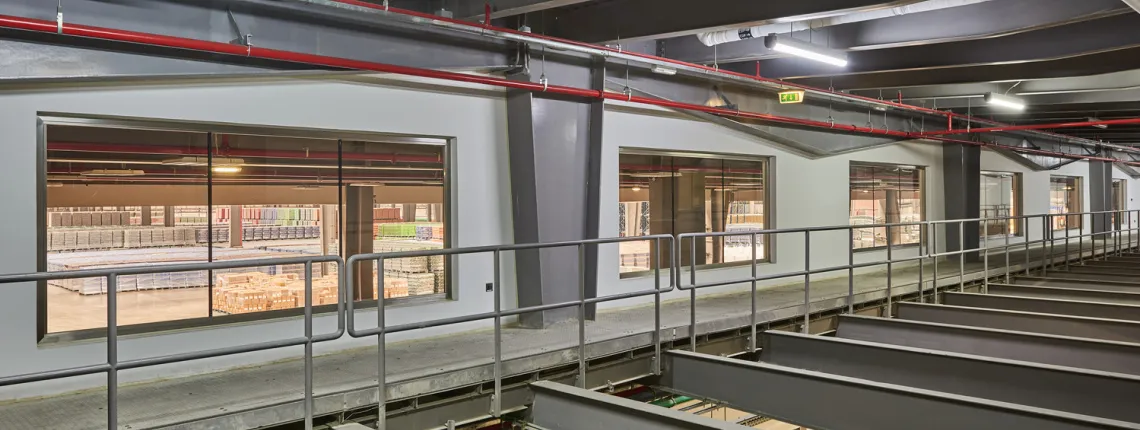
Industrial safety is no longer just about hard hats and evacuation drills - today, the very materials within your facility play a critical role in protecting lives and equipment.
Certified glass solutions, like laminated glass and toughened glass, can protect workers from heat, and human impact, while keeping operations running smoothly.
Here's how certified glass solutions are making your industries safer.
What is Certified Safety Glass?
Certified safety glass is specially tested glass that meets stringent criteria set by testing standards for handling heat, impact, fire, or force. Think of it as a regular glass's tougher, smarter version that's built for factory safety.
- Fire-Rated Glass: This glass can resist fire and heat for 30-120 minutes, making it essential for fire safety in factories and warehouses.
- Attack-Resistant Glass: An impact resistant glass where several interlayers and glass panes are laminated together to handle hits from tools or objects without breaking through.
- Bullet-Resistant Glass: Multiple layers are laminated under extreme pressure to stop bullets and keep visibility clear. It is used in industries that need high security.
- Blast-Resistant Glass: This multilayer laminated blast-resistant glass is designed to handle explosions by absorbing pressure waves, crucial for government buildings, chemical plants and refineries.
All these solutions should meet international safety standards and factory safety rules required by law.
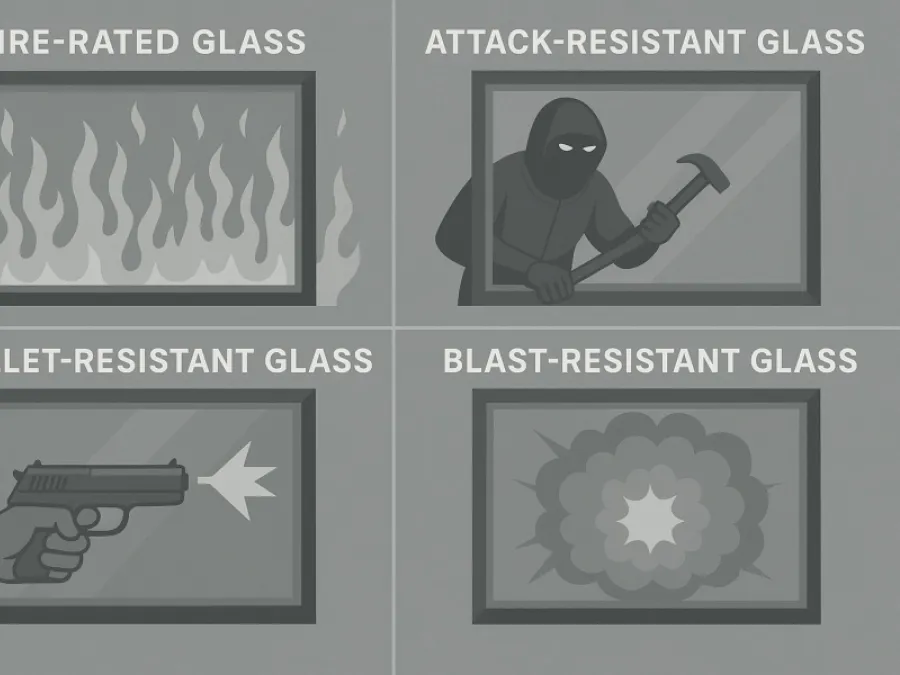
Where Industries Need Certified Glass the Most
Industrial safety refers to the measures and systems in place to protect workers and assets from accidents, aligning with the broader industrial safety definition focused on risk prevention and operational safety.
Different areas of your factory face different risks. Here's where safety matters most:
- Fire-Risk Areas: Boiler rooms and power stations need fire-rated, impact resistant glass that can block flames for hours while letting supervisors see what's happening inside. Chemical storage areas require glass that won't melt or break during fires, helping with fire safety in factories and warehouses.
- Machine Areas: Manufacturing floors with heavy machinery need laminated glass and toughened glass that can handle flying parts or tool drops. Robot work areas benefit from strong glass barriers that protect workers while letting them monitor operations.
- Labs and Testing Rooms: Quality control labs need clean, strong glass that maintains sterile conditions while providing visibility. Chemical testing areas require impact resistant glass that won't react with chemicals or break under pressure changes.
- Noisy Production Areas: Bottling lines and textile machines create lots of noise. Impact resistant glass can reduce sound while maintaining factory safety. Fire rated glass can also be combined with acoustic features. Printing and packaging areas benefit from glass that blocks noise but allows supervision.
- Temperature-Controlled Zones: Cold storage and heating areas need insulated laminated glass and toughened glass that handles temperature changes without cracking.
- Control Rooms: Supervision areas for dangerous processes need the strongest glass available - bullet-resistant or blast-resistant glass that keeps operators safe while maintaining clear views.
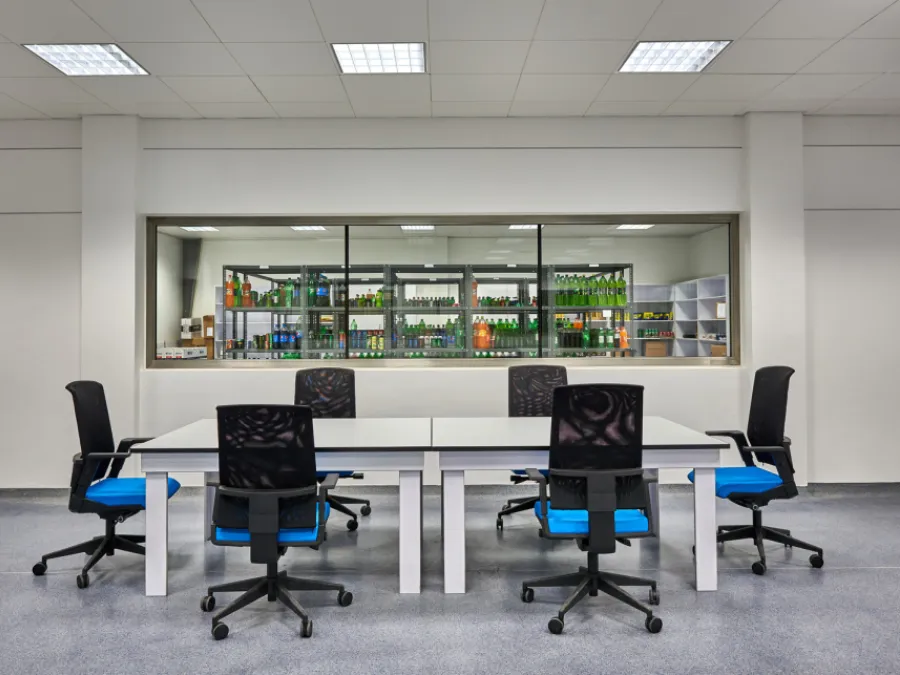
Why Use Certified Glass in Your Factory
Installing the right glass for safety in factories brings multiple benefits that improve both safety and business operations:
- Keeps Workers Safe: Toughened or laminated glass prevents injuries by holding together when it breaks. It also acts as a clear barrier between workers and hazardous machines.
- Helps You Follow the Rules: Certified safety glass helps meet Indian factory safety laws and international norms. It makes inspections smoother with proper documentation and tested systems.
- Creates Better Working Conditions: Safe glass windows brighten spaces with natural light while reducing risks. They also cut noise and allow safe supervision through transparent partitions.
- Saves Money Long-Term: Insurance costs drop when safety glass systems are in place. They reduce downtime and protect expensive equipment during accidents.
- Supports Fire Safety in Factories and Warehouses: Fire-rated glass stops fire from spreading, giving people more time to escape. It helps firefighters act quickly and shields inventory from damage.
- Keeps Business Running: Glass systems isolate problems, keeping other areas fully operational. They protect critical zones and prevent reputation-damaging accidents.
How to Choose the Right Glass for Your Factory
Making smart choices about safety glass in factories requires understanding your specific needs:
Start with a Safety Assessment
- Review your current factory safety rules and see where glass upgrades could help.
- Consider your industry's specific dangers - chemical plants need different glass than textile factories.
Match Glass Types to Risks
- Use fire-rated glass in areas with risk of high heat sources or flammable materials for better fire safety in factories and warehouses.
- Install impact resistant glass near heavy machinery or high-traffic areas.
- Choose multi-layered laminated glass and toughened glass combinations for areas with multiple types of risks.
Work with Professionals
- Get expert advice on which glass types meet your factory safety requirements.
- Ensure proper installation by qualified technicians who understand industrial applications.
- Plan for maintenance to keep your glass systems working effectively over time.
Consider Future Needs
- Think about expansion plans when choosing glass systems that can grow with your facility.
- Plan for regulatory changes that might require upgraded factory safety rules compliance.
- Budget for upgrades that improve both safety and operational efficiency.
The right glass isn't just about seeing through walls - it's about protecting your most important asset: your people. Whether you're building a new factory or upgrading an existing one, Vetrotech's certified glass solutions help you meet factory safety rules while keeping operations running smoothly.
What's the difference between laminated and toughened glass?
Laminated glass and toughened glass work differently: laminated glass stays in one piece when broken, while toughened glass breaks into small, safe pieces. Both improve factory safety but in different ways.
Can safety glass really prevent workplace accidents?
Yes. Impact resistant glass significantly reduces injuries from broken glass and provides barriers that protect workers from machinery, heat, and chemical hazards. It's a proven part of comprehensive factory safety rules.
Is safety glass required by law in Indian factories?
Yes. The Factories Act of 1948 and current BIS standards require proper safety measures, including fire-rated and impact-resistant glass safety in factories. Many factory safety rules specifically mention glass requirements for different types of industrial operations.
How does certified glass help with fire safety?
Fire-rated laminated glass, like VDS Fire-rated Sliding Doors, creates barriers that contain flames and smoke, giving workers time to evacuate. This is essential for fire safety in factories and warehouses where a quick-fire spread could trap people or destroy valuable inventory.
Is certified glass expensive?
While certified impact resistant glass costs more upfront than regular glass, it saves money through reduced insurance premiums, fewer accidents, less downtime, and better regulatory compliance. Most factories find it pays for itself through improved factory safety and operational benefits.
